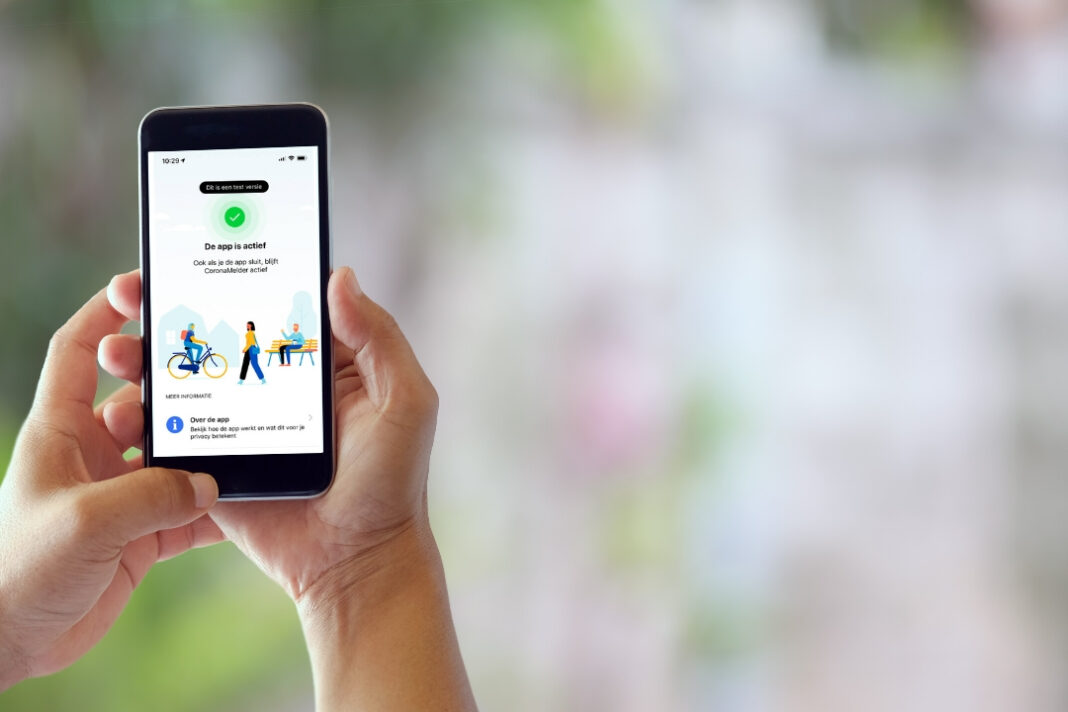The Dutch coronavirus app, CoronaMelder, has begun public testing today. Several hundred residents of Twente will use the app over the coming weeks. If successful, a nationwide rollout is expected.
The app works by alerting users if they have been in close contact with another person with coronavirus. Using Bluetooth signals, the app can measure with “significant reliability” if you could have a risk of infection. However, the app only works if both people have it installed.
Local health departments will use the app to find out who coronavirus patients have been in contact with. Early detection of potential infections is important so that people can self-isolate, and reduce the risk of further transmission. “We must do everything we can to prevent a second corona wave. We are the dyke that can stop that second wave. The app can play an important role in this,” Dutch Minister for Health Hugo de Jong said in a statement.
ALSO READ: Coronavirus in the Netherlands: all you need to know [UPDATED]
Put away your tin foil hats (and someone please tell those people who set 5G towers on fire). While the app is communicating constantly, users of the app and the government do not see names or identifying information — in fact, you’re reduced to a string of numbers representing your movements.
If someone tests positive, they can choose to send their information to a central server, which is then sent to everyone who has the app installed. If someone has been in contact with the person confirmed to have been infected, they will receive a warning message.
If you’re at risk of infection, you will receive a notification. You’ll be able to request a corona test, and you can report yourself that you have coronavirus.
Personal privacy has been highly criticised in other countries that have rolled out coronavirus tracing apps. In the Netherlands, When CoronaMelder is installed, it states that your name, location data and other personal information is not stored. You’ll be asked if you want to switch on Bluetooth, and if so, Apple or Google’s COVID 19 exposure technology will activate. The app will run in the background from then on.
However, people remain suspicious of the privacy features, which will undoubtedly come under further scrutiny on widespread release.
What better way to wreak havoc than a bunch of kids claiming to have coronavirus when they don’t, right? Well, they’ve thought of that. If you are unfortunate to test positive for coronavirus you can indicate this in the app. The regional health department will confirm the infection using a unique code.
If you have tested positive and have been around anyone for more than 10 minutes (who also has the app installed) they will receive a notification. The notification is anonymous — so you can’t play the blame game. The app will tell you that you are at a higher risk of infection and that you should watch out for symptoms.
Only several hundred residents of Twente are currently testing the app, so you won’t find it on Google Play or the App Store. The Dutch government will announce in mid-July if CoronaMelder will be rolled out nationwide and be available for everyone to download. However, you may need to brush up on your Dutch — the CoronaMelder app is not expected to be in English.
Will you be using the CoronaMelder app if it is released? Tell us your thoughts in the comments below!
Is the government watching?
What about privacy?
Can people fake an infection?
When does the coronavirus app trigger an alert?
When can I download the app?



